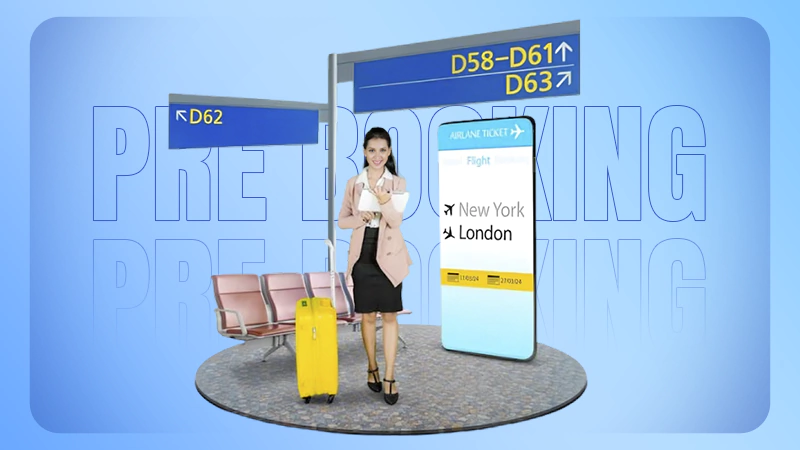Accounting for Restaurants: An Easy 7-Step Guide
An individual’s culinary skills and passion for hospitality are often the driving forces behind opening a restaurant. Nevertheless, to thrive, it must have a well-functioning accounting system. Accounting plays a fundamental role in ensuring sustainable growth and success for restaurants and any other type of business.
Due to the rapid changes in the restaurant industry, traditional accounting methods can no longer keep up with them, which is why restaurant accounting is becoming more widespread. The food and beverage industry does not have fixed accounting methods, unlike other sectors using specific ones.
An integral aspect of restaurant accounting requires a strong understanding of the food and beverage industry. Due to restaurants’ slim profit margins, they must keep a close eye on their bookkeeping.
An accounting system for restaurants plays a crucial role in controlling costs, maintaining profitability, setting budgets, and ensuring that the restaurant is on track to meet its growth targets. The following are the seven steps for efficient restaurant accounting:
Hire a Qualified Accountant
It is always a good idea for restaurants to hire professional bookkeeping services. It can be confusing to deal with the whole thing, and bookkeeping can be complicated to manage, which is why accounting services are a good idea.
The accountant can help restaurant owners, no matter if they’re just getting started or if they’ve been running restaurants for years. They ensure compliance with federal, state, and local laws while maximizing profits.
Restaurant owners are generally responsible for setting prices, maintaining inventory, and hiring staff. Consulting an accountant can save significant time and energy that would otherwise be devoted to financial analysis.
Choose a Reliable Point-of-Sale System
POS systems are essential for any business, whether a cafe or a restaurant, as they are essential to managing cash, and sending receipts, inventory, and orders.
A POS system and an accounting system can be linked to keeping track of inventory, labor costs, payment methods, and other aspects of a business. However, choosing a user-friendly system that integrates seamlessly with accounting software is essential.
Choose the Best Accounting Software
The right tools are essential even if an accountant handles daily bookkeeping duties. The use of accounting software simplifies data entry tasks, tracks revenue, enables the creation of custom invoices, prepares profit and loss statements, and provides cash flow reports.
Restaurants should use bookkeeping software that offers comprehensive reporting capabilities, is user-friendly, and allows them to access data on the go.
Outsource Payroll Processing
The risks and costs of doing payroll ourselves make outsourcing payroll a good choice. Managing payroll in the restaurant industry can be challenging since tracking employee hours can be complicated. The ability to handle multiple pay rates is crucial for restaurants with several wages and employees.
It takes a lot of time and effort to stay up to date with federal, state, local, and workforce regulations, especially regarding payroll and taxes that are subject to constant change. In addition, there may be penalties and interest charges if there are mistakes in tax reporting or payment. An experienced, trained professional is best suited to handle all the complex changes in payroll.
Manage Costs and Expenses
Restaurants incur expenses. One of the best ways to maximize profits is to keep those expenses under control. Costs and fees associated with restaurants can include the following:
- Restaurant Labor Cost: This represents labor costs associated with the restaurant’s operation. Paying attention to this expense is essential since it accounts for a significant part of restaurant expenses.
- Cost of Goods Sold (COGS): Cost of goods sold (COGS) is one of the most critical metrics for restaurants. Essentially, it is the cost of producing a menu item.
Restaurants must monitor COGS regularly because it directly impacts profit margins and revenue. Having a well-defined COGS and keeping track of it is essential for a restaurant’s profitability. - Occupancy Expenses: These include fixed expenses like rent, property taxes, utilities, etc.
- Operating Expenses: The operating expenses of a restaurant are the costs incurred daily to maintain the restaurant. There are three types of operating expenses: fixed costs, variable costs, and semi-variable costs.
Monitor Sales and Inventory
For restaurants to run smoothly, accounting processes are crucial. Although hiring restaurant accounting services for most financial operations is generally a good idea, there are a few things to consider:
- Sales: Cash flow tracking is an essential part of restaurant bookkeeping. Records of accounting can be used to show food sales earnings. Often, it is helpful to find daily revenue figures, which can be broken down further by product category.
- Inventory: Since food and beverage, along with labor costs, constitute a significant portion of a restaurant’s expenses, the status of the stock can make a big difference in the success or failure of the business. A restaurant inventory management system can help reduce food waste, optimize food costs, and prevent food shortages.
Review Financial statements
A monthly look at sales volumes, table turnover, balance sheets, and revenue and loss reports is essential for understanding restaurant financials.
The restaurant industry has a low return rate. In the absence of financial statements, business operations have no direction. Restaurant bookkeeping and operating reports should be reviewed regularly to ensure smooth operations and optimal results. Resource allocation can be managed effectively with a good understanding of revenue and capital flow statements.
The Conclusion
The key to a successful restaurant business lies in efficient accounting. Despite the overwhelming nature of restaurant accounting, understanding the fundamentals can significantly contribute to profitability. A professional accountant can help make the process simpler and more streamlined.














